History & Traditions
The university opened the doors to its one-room school, known then as Highland Academy, in 1891 with 12 students.
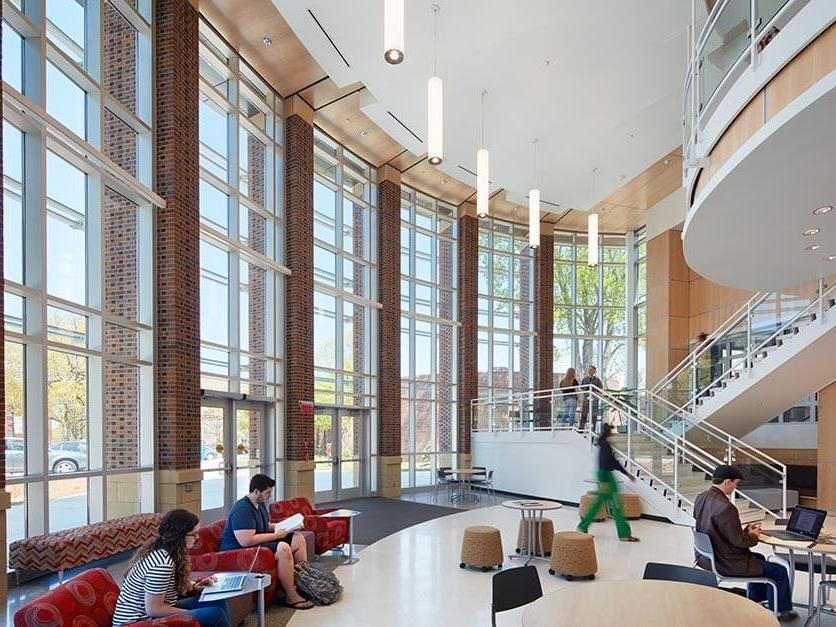
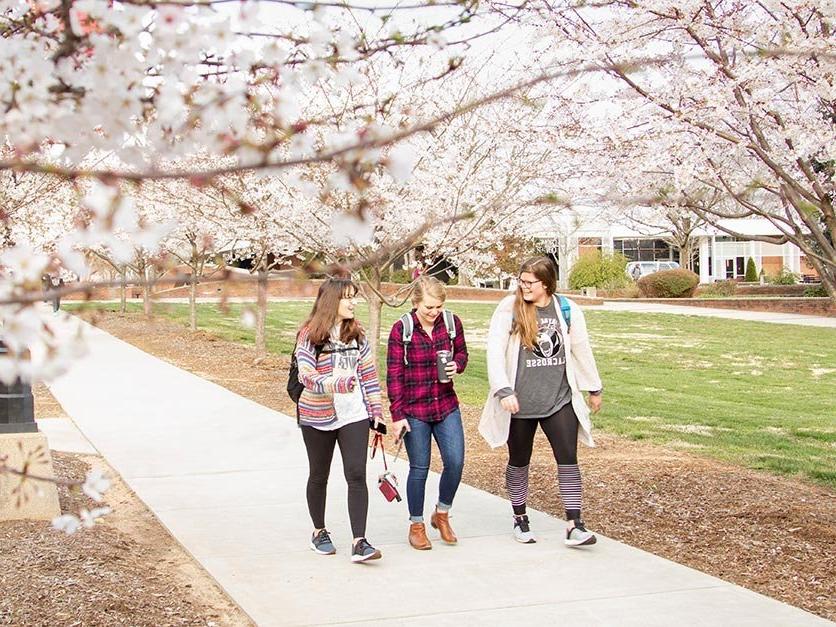
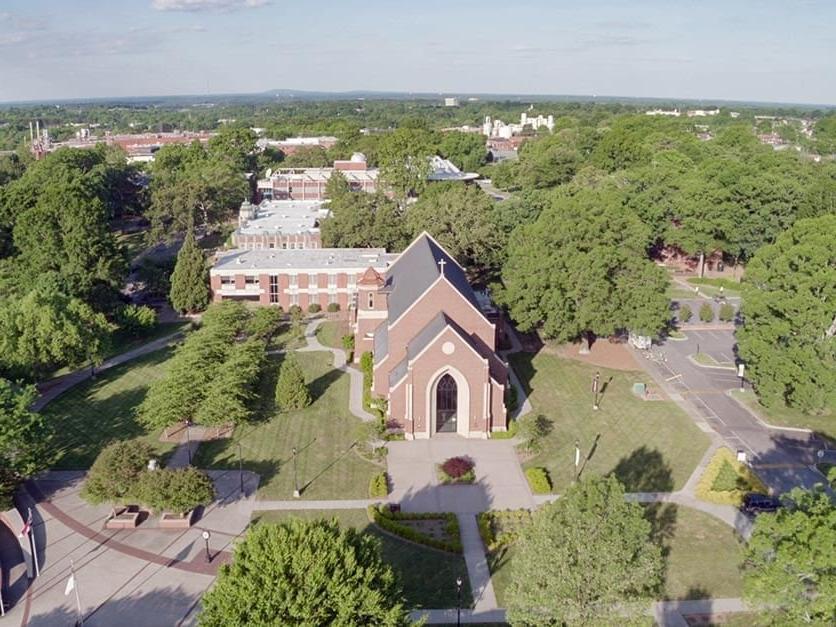
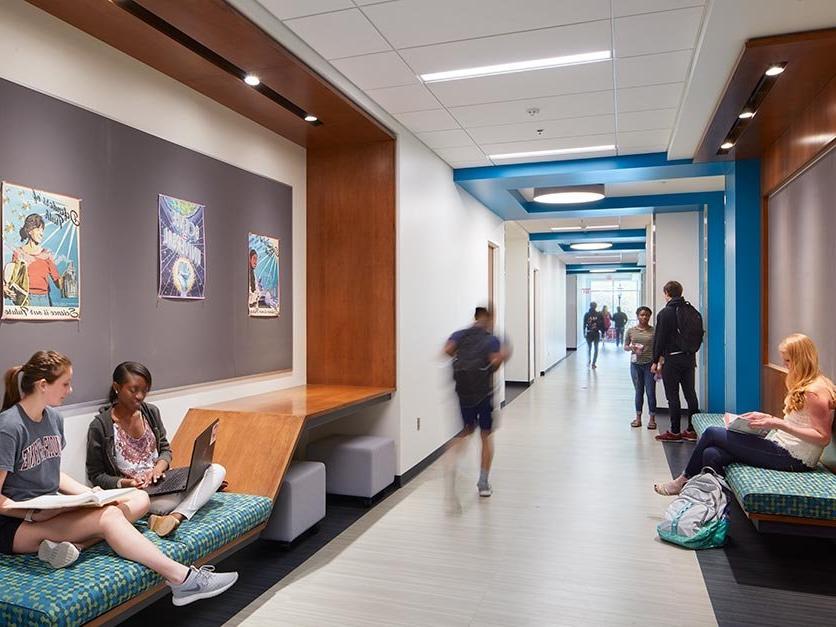
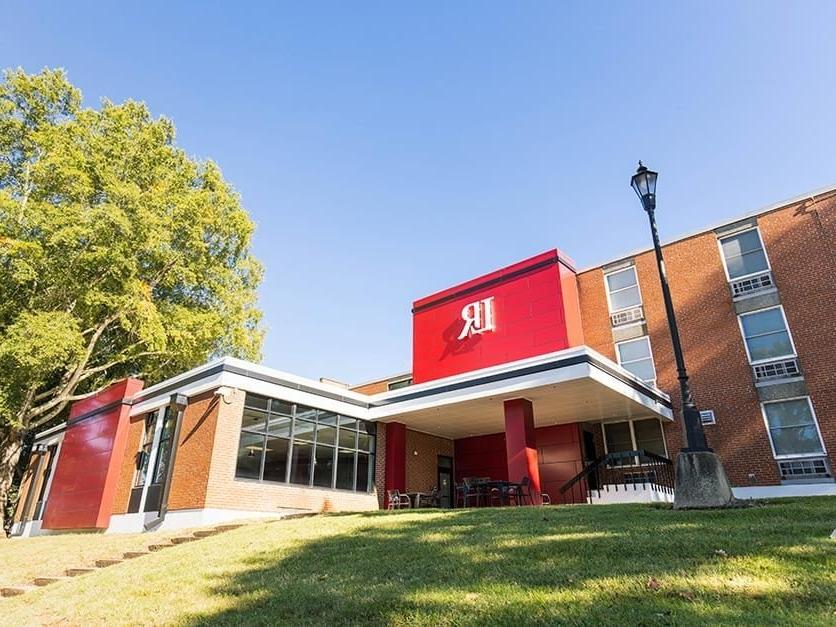
The university continues to innovate and grow in order to provide students with a cutting-edge education and fulfilling opportunities.
The original property, a 56-acre tract one mile north of the Hickory business district, was part of the estate of a Watauga County lawyer Walter W. Lenoir. Before he died in 1890, Lenoir donated the land as a campus for a church-sponsored college. The school officially opened on September 1, 1891.
In 1895, the college assumed its first official synodical sponsorship which continues today with the North Carolina Synod of the Evangelical Lutheran Church in America.
Name Origins
Four months into being known as Highland College, the school was chartered under the name of Lenoir College in memory of Walter W. Lenoir and his donation of the land. In 1923, the college became Lenoir-Rhyne, in honor of Daniel E. Rhyne, a Lincoln County industrialist who boosted the endowment and other assets of the institution. The college was admitted into the Southern Association of Colleges and Secondary Schools in 1928.

They wanted to create a school for young people to receive an education based on religious principles and Christian values.
School Growth
With the end of World War II came an influx of students, boosting enrollment from 407 in 1945 to 843 in 1947. In the late 1960s, the college initiated long-range plans to enrich the quality of its curricula and has never looked back. Some of major improvements included changes to the academic calendar, new courses were offered and joint degree programs with other institutions were added, student personnel services were expanded, new buildings were constructed and others were renovated. The campus almost doubled in size and the endowment hit new highs.
In March 2008, the board of trustees for the college approved the plan to transform Lenoir-Rhyne College into a Lenoir-Rhyne University. This name change came to help better reflect the growth being made in enrollment, faculty and staff.
Lenoir-Rhyne University Today
Lenoir-Rhyne University has developed into a nationally recognized liberal arts university of choice – with nearly 2,300 students and 127 full-time faculty.
The university has reached new heights in education and continues to provide an intimate class atmosphere for our students to become passionate leaders of tomorrow.
Today, more than 130 years after its founding, Lenoir-Rhyne continues to follow the heart of its mission – as a community, helping students in the pursuit of becoming a whole person who promote responsible leadership and are clarified in personal faith.
Lenoir-Rhyne Through the Years
Explore Lenoir-Rhyne's past, traditions and highlights as shaped by students, faculty, staff and alumni.
-
2010-Present
2024
On Tuesday, March 26, LR hosted its seventh annual giving day, Bears Give Back, and set a new record for total dollars raised in 24 hours. 785 generous alumni, families, friends and students contributed $847,320 in support of the academics and experiences. This year a group of anonymous donors issued a challenge to ramp up that encouragement by offering a $600,000 donation when the total number of donors – making gifts of any size – reached 600. The final total of donors exceeded that goal by 30 percent.The board of trustees unanimously voted on March 22 to approve the move of Lutheran Theological Southern Seminary from Columbia, South Carolina, to the campus in Hickory, North Carolina. Seminary programs will relocate to Hickory effective Jan. 1, 2025, pending approval by SACSCOC (LR’s accrediting body).
Each year, the Office of Institutional Advancement, in partnership with the Alex Lee Career and Professional Development Center, invites Lenoir-Rhyne University alumni to participate in the First Destination Survey. According to the survey for the Class of 2023, 97 percent of graduates are fully employed or enrolled in a graduate program. According to the 2022 NACE survey, the national average for undergraduates employed or in a graduate program after graduation was 86 percent.
2023
LR has lowered tuition by 30 percent. The $13,000 drop — from $43,000 to $30,000 — will apply to all new and returning, full-time undergraduate students beginning in fall 2023. The net price may be lowered even further for students through federal, state and institutional financial aid. This year, 100 percent of undergraduate students received some level of need or merit-based aid, and the university will provide more than $38 million in scholarship and financial aid.In February, LR signed agreements with 14 regional community colleges to make it easier for community college students to transfer to LR. This effort, named Bear Bound, includes seamless transfer of credits and better packaging of financial aid for transfers and makes an LR degree even more attainable and affordable.
In the fall, the university celebrated the 35th anniversary of the Visiting Writers Series, which has brought some of the world’s most renowned writers to campus. To celebrate this milestone, an initiative to endow this program to ensure our ability to continue this important program in perpetuity was started.
Thanks to a $1 million gift from Rob Fritz ’76 and his wife Kathy, LR now has the Fritz Honors College, a selective program for students who demonstrate curiosity, motivation, passion and drive. The college will offer an honors academic curriculum, as well as opportunities for research, internships, study abroad and more. It will bring together the Engaged Scholars program, Honors Academy and Lineberger Fellows under a single umbrella to continue a long tradition of student enrichment.
Both the men’s lacrosse team and the women’s triathlon team are currently national champions. The lacrosse team was honored with a June visit to the White House for College Athlete Day, and both teams visited North Carolina Gov. Roy Cooper at the Governor’s Mansion in October. The lacrosse team also earned the highest GPA in all of NCAA Division II.
2022
Over the summer, the university implemented a new organizational structure in support of the strategic plan. These shifts include the creation of a new division, Mission, Engagement and Innovation, and will allow us to be more nimble, innovative and student-focused.LR raised a record amount of $19.3 million in cash and commitments last year in support of scholarships, academics and athletics. Notably, more than 11.5 percent of Lenoir-Rhyne alumni and more than 16.7 percent of LTSS alumni made gifts in 2022, marking growth in the university’s alumni giving.
In August the university celebrated the ribbon-cutting of the newly renovated Moretz Stadium, home to football and men’s and women’s lacrosse. The $18-million project will significantly improve the experience for student-athletes and fans and will allow the stadium to be used as a community resource for camps, concerts and other events.
An innovative partnership between Lenoir-Rhyne University and Catawba Valley Community College will allow CVCC students to live on LR’s campus this fall and take part in LR student-life while taking classes at CVCC. The goal is for CVCC students to enroll at LR and receive a four-year degree.
2021
Lutheran Theological Southern Seminary of Lenoir-Rhyne University announced accreditation had been reaffirmed by the Association of Theological Schools for 10 years.2020
To support campus safety, Lenoir-Rhyne University partnered with the City of Hickory to place officers from the Hickory Police Department on campus full-time beginning in February. Other recent collaborations include improved crosswalks and enhanced lighting around campus.To provide transformational opportunities for students and enhance the previous academic structure, LR reorganized to a six-college format.
The Graduate School announced record enrollment for 2020-21 with 903 students officially enrolled.
LR launched the Lenoir-Rhyne Equity and Diversity Institute certificate program. A 30-hour program, LREDI provides participants 16 hours of coursework focused on leadership with 12 additional hours of strategy geared toward company-specific solutions. It culminates in a session that allows participants to explore equity as it relates to real-life scenarios.
The Doctor of Nursing Practice program received accreditation from the Commission on Collegiate Nursing Education for a five-year term.
2019
To offer half-off tuition statewide, the university expanded its Catawba County Promise program to provide the same tuition benefits statewide. Now called Lenoir-Rhyne Promise, the program, which covers tuition only, applies to new and full-time undergraduate students starting fall 2020.2018
On April 12, 2018, LR held an inaugural Giving Day Challenge, Bears Have Heart, prompting dedicated alumni, faculty, staff, students, and community partners to give more than $97,000 to the institution.The first cohort for the Family Nurse Practitioner/Doctorate of Nursing Practice, LR's first doctoral program, began in August 2018.
The 30th anniversary of the Visiting Writers Series was celebrated during the 2018 academic year.
In May 2018, men's lacrosse advanced to the NCAA DII Men's Lacrosse National Championship Semifinal game. Head Coach Greg Paradine was also named the National Division II Coach of the Year for the 2018 season.
The freshman class of more than 500 was the largest class in LR history.
Launched Catawba County Promise, an innovative program to provide a minimum of 50 percent off tuition for any first-year undergraduate student with a 3.5 or higher high school GPA who is a Catawba County resident or to a transfer undergraduate student from Catawba County with more than 30 attempted hours from an accredited college and a 3.5 GPA.
In December 2018, LR broke ground for the Neill McGeachy Sports Performance Center. The facility will feature 14,000 square feet of new and enhanced multiuse training space, a weight room, nutrition bar and indoor turf training area, enhanced team meeting spaces, additional coaches offices, and a covered pavilion for Bears Club hospitality and engagement space.
2017
Dr. Frederick K. Whitt and his wife, Donna, are welcomed to Lenoir-Rhyne's campus in February 2017. Whitt was named the 12th president of the university.2016
In January 2016, Lenoir-Rhyne opened its doors to the new Wayne B. Powell Health Sciences Center and welcomed its inaugural class for the Physician Assistant Studies Program.Kim Pate was named the director of intercollegiate athletics on March 1, 2016. She replaced Neill McGeachy, who resigned after 14 years of service.
President Donald Trump visited LR's campus in March 2016 while campaigning for the 2016 presidential election. Although LR endorses no political candidates, the institution is founded on principles that firmly support open civil discourse and the free exchange of ideas.
In the fall of 2016, the spirit of LR Marching Band took the field for the first time since the early 1990s. Neil Underwood was appointed as the band's director.
Community members joined LR officials at the groundbreaking ceremony for the new Occupational Therapy building at the Center for Graduate Studies of Columbia in November 2016.
2015
The University Rising campaign finished in March 2015 with $66 million raised.In August, the Minges Science Building addition held its groundbreaking. The addition was named Alex and Lee George Hall.
The 2015 academic year marked the 125th anniversary of the institution. "A Fair Star Rises" was produced to commemorate the tradition and history of our campus community.
2013
A groundbreaking ceremony was held for the construction of the new chapel in March 2013. Located in the heart of campus, Grace Chapel was dedicated on November 21, 2014.The LR football team finished second in the NCAA Division II National Football Championship. The game, played on December 21, 2013, in Florence, Alabama, was televised by ESPN.
2012
The merger between Lutheran Theological Southern Seminary in Columbia, South Carolina and Lenoir-Rhyne University became official in July 2012.In August, the LRU Center for Graduate Studies in Asheville, North Carolina opened its doors to students.
2010
A generous gift from Irwin Belk gave the University a 12-foot-tall statue of Martin Luther in October of 2010. The statue is believed to be the largest statue of Martin Luther in the world. -
2000-2010
2009
The Solmaz Institute for Obesity was established in October 2009 with $3 million gift from Gungor and Diana Solmaz of Denver, North Carolina.2008
In March 2008, the board of trustees approved the plan to transform Lenoir-Rhyne College into a university. On August 23, 2008, Lenoir-Rhyne University was officially approved.The Donald and Helen Schort School of Computing Sciences and Mathematics was established with a $2.5 million estate gift from the couple.
The first phase of the Moretz Sports – Athletic Complex was completed, including the Irwin Belk Track and a new soccer field. This was the first track and field complex in the college’s history.
Students moved into the new Residential Village and the newly renovated Fritz-Conrad Residence Hall.
2007
John ’72 and Marilyn ’73 Moretz gave the largest gift in the college’s history, totaling $5.1 million. This generous gift funded a nursing scholarship and improvements to athletic facilities. Later that year, the board of trustees appointed the Commission for Lenoir-Rhyne to study the future of the college. The board also approved an aggressive plan for $50 million in expansion and improvements of LR’s physical facilities.2005
The Charge, the iconic larger-than-life size statue of a black bear in attack stance, was installed on campus. The statue by noted sculptor John Phelps was a project of the Piedmont Educational Foundation/Bears Club.2004
Renovations and dedication of Mauney-Schaeffer Conference Hall.Establishment of the Thomas W. Reese Institute for Conservation Studies, which was established with a gift of $3 million from Thomas Reese ’48, owner of Hickory Printing Group.
Hands on Hickory, a community service program for incoming freshman was launched by the Office of Student Life.
2002
The Charles M. Snipes School of Business & Economics was the first school of the college to be named. It was named after banker and alumnus Charles Snipes ’58.The McCrorie Center opened.
2000
Lenoir-Rhyne’s Friends of Music was established to support performing arts on campus and in the community.On September 22, 2000, ground was broken for the McCrorie Center – a 33,500 square-foot building designed to house health science programs and provide athletic spaces, named for alumnus Hank McCrorie ’60, who donated the naming gift.
-
1980-1999
1996
The sacred music program began in 1996 and the newly formed Lenoir-Rhyne Youth Chorus has its inaugural performance in April 1997.1995
Natalie Daniel earned First Team All-American honors in soccer – the first woman to do so in Lenoir-Rhyne’s history.1991
To encourage and support student travel, Lenoir-Rhyne opened the office of international.1990
In the Shuford Gymnasium on a steamy August day at 10 am, Dr. Gunnar Stålsett, General Secretary of the World Lutheran Federation in Geneva, Switzerland, officially opened the Lenoir-Rhyne College centennial year.1988
On November 14, 1988, English professor Dr. Rand Brandes began the Visiting Writers Series, with Paul Muldoon serving as the first visiting writer.1981
Sen. George McGovern, the 1972 Democratic Party presidential nominee, spoke at Lenoir-Rhyne. -
1960-1979
1977
In April 1977, Pulitzer Prize-winner Alex Haley, the author of “Roots,” spoke at Lenoir-Rhyne.The College began its support services for deaf and hard of hearing students, designed to make higher education more accessible.
Alfred Chine became the the first foreign Student Government Association president. Chine was a political science major from Auka, Nigeria.
1968
Gloria Ann Sudderth became the first African-American to graduate from Lenoir-Rhyne.1976
President Gerald R. Ford and presidential candidate Gov. Jimmy Carter spoke on campus in the P.E. Monroe Auditorium.The board restored the hyphen to the name Lenoir-Rhyne after 50 years of debating the topic. During the Bost administration, the cause was renewed by Orestes P. Rhyne, who later became known as the “Hero of the Hyphen” by challenging the institution to take action with an offer of $5,000 to the endowment fund on the table. The board accepted his offer and the hyphenated name became official in the spring.
The Lenoir-Rhyne Sports Hall of Fame was endorsed in late 1976 by the board of trustees to “recognize and perpetuate the noteworthy athletic tradition of Lenoir-Rhyne College by honoring and memorializing individuals who have made extraordinary contributions to this tradition.”
1966
The Greek Awards were founded by Dr. Ellis Boatmon, a history professor, to recognize the achievements of fraternity and sorority members.1965
During the 1965 academic year, Raymond M. Bost became Lenoir-Rhyne’s first full-time academic dean and served in that position until his election as president in 1968. Bost’s successor, Albert B. Anderson, assumed the presidential duties on September 13, 1976 and was the first non-clergyman to serve as president.1963
The Cromer Center opened, incorporating part of the original dining hall, while also providing space for student activities. It is named for former Lenoir-Rhyne President Voigt Cromer.LR enrolled its first five African-American students during the summer session. Among them was Jerry Shaw, the first full-time black athlete at LR. After graduation, he became a member of the college’s student activities staff. Shaw Plaza and Shaw Center, home of the Black Student Alliance, are named in his memory.
1960
The Minges Science Building, named after the L.L. Minges family of Rocky Mount, North Carolina, opened.The Bears football team, under head coach Clarence Stasavich and assistant coaches Hanley Painter and Norman Punch, won the national championship.
-
1940-1959
1957
On February 16, 1957, the first basketball game was played in the new Shuford Gymnasium. Construction of the gym was made possible by the generosity of A. Alex Shuford Jr. and Shuford Mills. The gym was built as part of Our Campaign for a Greater Lenoir-Rhyne, a $1.5-million fundraising effort that included several buildings.1942
The Carl Augustus Rudisill Library opened, the result of a generous $50,000 gift from the Cherryville textile executive and member of LR's Class of 1905. -
1920-1939
1935
Professor Kenneth Lee began the A Cappella Choir.1928
Daniel E. Rhyne, a Lutheran businessman from Lincoln County, gave $150,000 toward the college’s rebuilding effort. The Rhyne Building, one of the first new buildings, was named in his honor. The name of the college was later changed to Lenoir-Rhyne College to reflect his contributions.Mauney Hall, the new women’s residence hall named for the Jacob and Andrew Mauney families of Kings Mountain, who paid for its construction, was completed.
Henry Owl, the first Cherokee to graduate from a North Carolina college, earned his degree.
1927
In January 1927, a fire destroyed Old Main, the administration building. Because insurance could not cover the loss, the college developed a bold funding drive to replace the building, while also constructing a new women’s dormitory and a dining hall. The Hickory Daily Record assisted in the rebuilding efforts, calling on the public to donate books to replenish the college’s library. The community effort collected 8,715 books and $900 in cash. Ultimately more than 9,000 volumes are received.Joe Bear, at the time a live animal, was introduced as the college mascot.
1926
Professor Pearl Setzer Deal created the Lenoir-Rhyne Playmakers.1924
A Raleigh News & Observer sportswriter, reporting on the 1924 Lenoir College baseball team’s 22-7 win over Atlantic Christian College in Wilson on April 9, observed that “after a slow start, the Lenoir-Rhyne team came charging out of the dugout like mountain bears charging forth from their haunts in the Western North Carolina mountains.” The nickname bears stuck after that. -
1900-1919
1917
Librarian John C. Seegers, Jr., wrote the alma mater “Fair Star of Caroline.”1915
At the annual banquet, the alumni association selected as speaker Virginia pastor A.L. Boliek, who was the first alumnus to have a son graduate from Lenoir. His son, Leo L. Boliek, received his degree the same week to become the college’s first “grandson.”1909
A proposal for a college yearbook was made to faculty at its meeting on January 22, 1909. A name for the publication – HACAWA, meaning Halls, Campus, Walls – was decided on February 12, 1909. The name was proposed by Fritz, who later wrote, “The jobs, successes, pleasures, victories – and failures – were deeply within their three never-to-be-forgotten realms – Halls, Campus, Walls!”1907
The college awarded its first honorary doctorates.1903
In the summer of 1903, Fritz selected the school colors (garnet and black) and the motto “Veritas vos Liberabit” (the truth shall set you free, from John 8).The college started a baseball team, its first intercollegiate sport. Two years later, it fielded its first intercollegiate football team.
1901
Robert Fritz became the college’s second president in 1901. On March 13, 1919, he resigned as president, closing out a tenure of 18 years, 7 months, and 11 days – the longest in school history. -
1891-1900
1891
Highland Academy was founded by four Lutheran pastors and opened as a co-educational place of higher learning. The doors opened on September 1, 1891 with a student enrollment of 12.Four months into its founding, the college was renamed to Lenoir College in honor of Walter W. Lenoir, a Wilkes County lawyer and judge, who donated the property for the college in his will.
The first college president was the Rev. Robert Anderson Yoder, who served from 1891 to 1901.
1895
The college assumed its first official synodical sponsorship (which continues today) with the North Carolina Synod of the Evangelical Lutheran Church in America.
News & Events
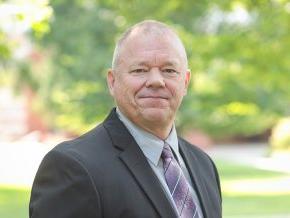
Director of Public Safety Randy Isenhour joined LR in fall 2024 after decades with the Hickory Police Department. He reflects on his career and shares his hopes and advice for a safer campus.
View More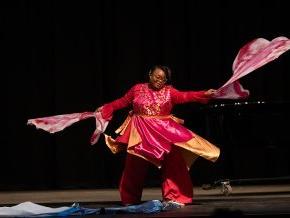
Campus and community will once again join to celebrate the legacy of the Civil Rights icon and continue his work through spiritual and public service.
View More